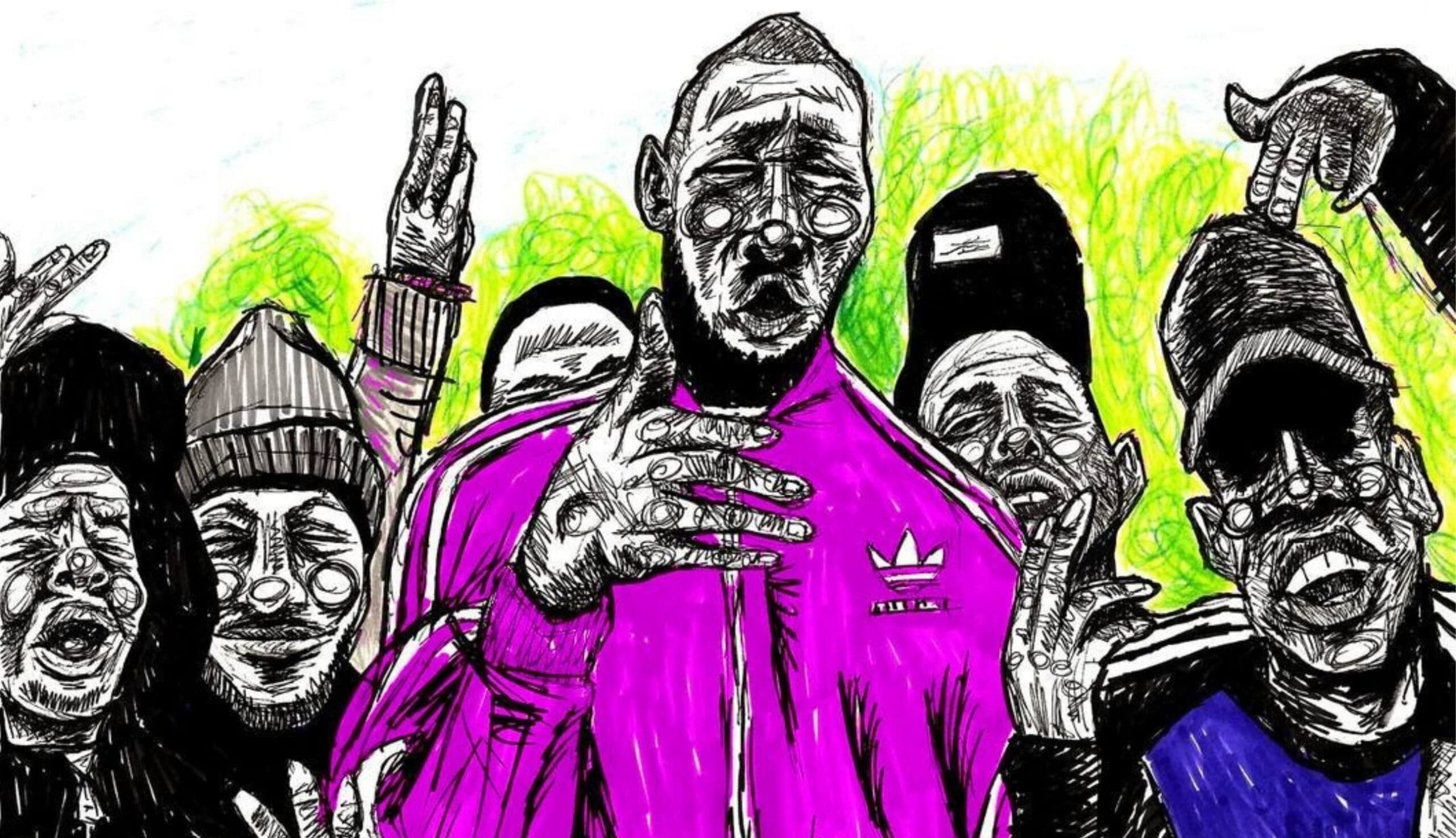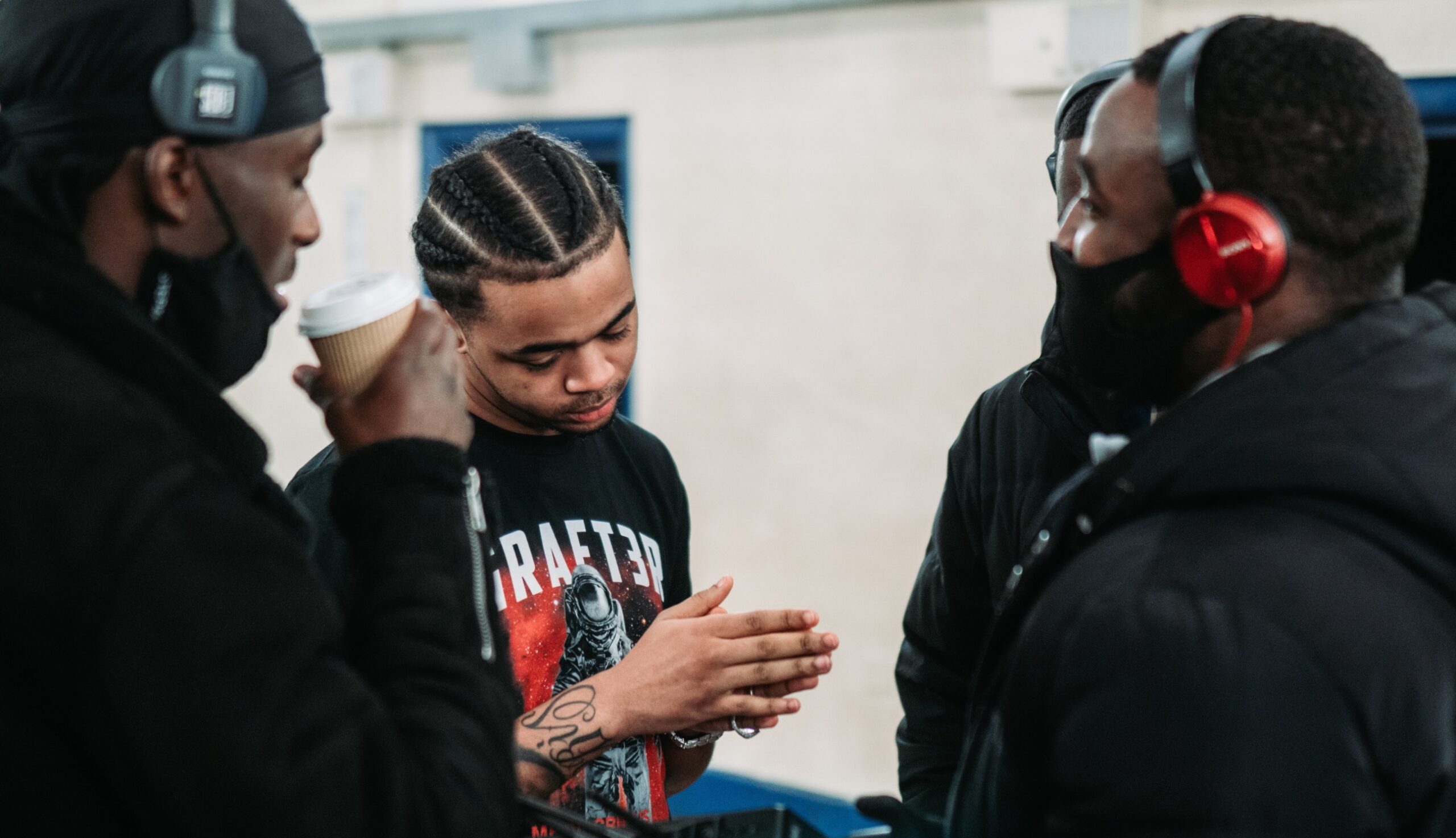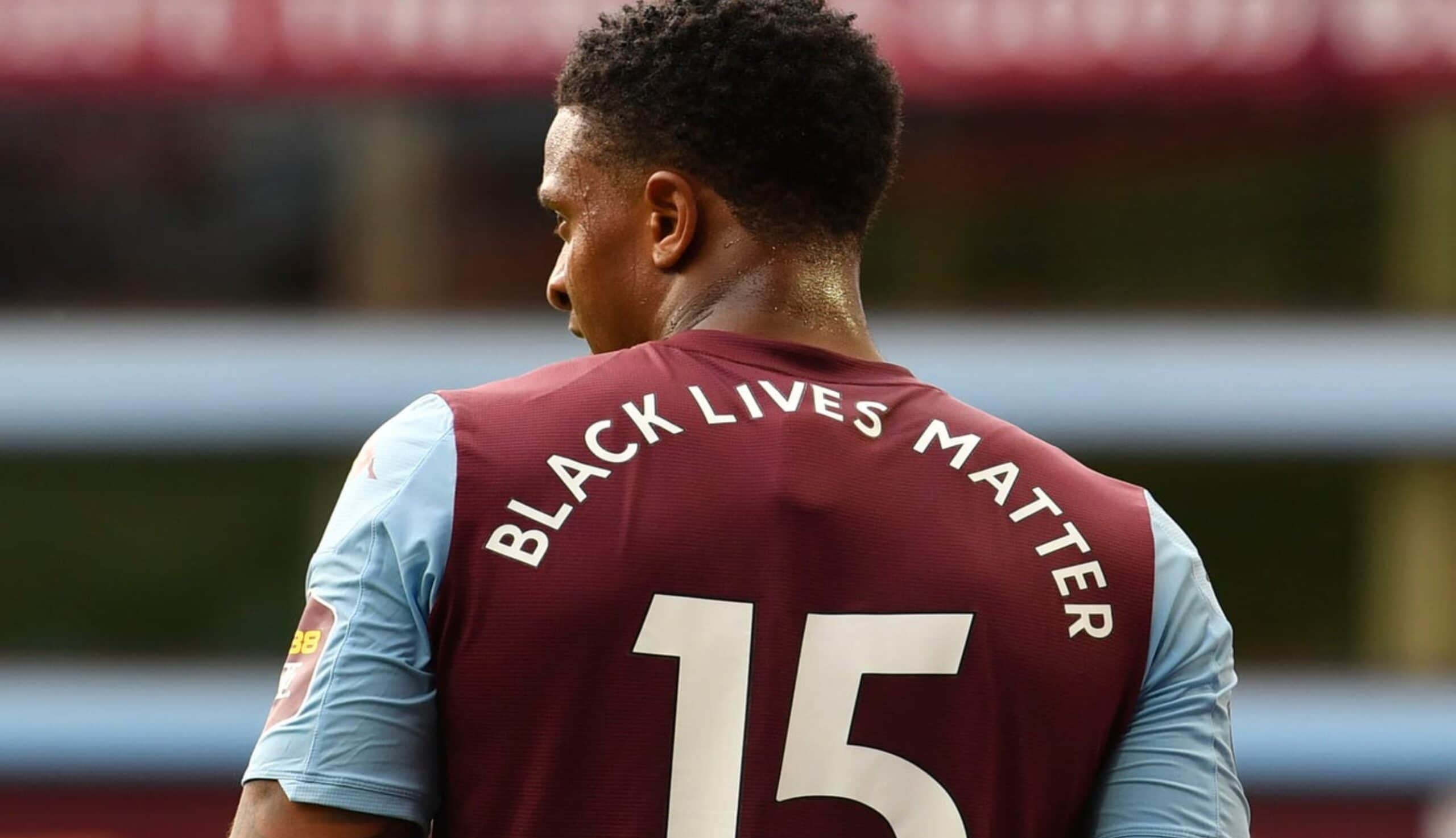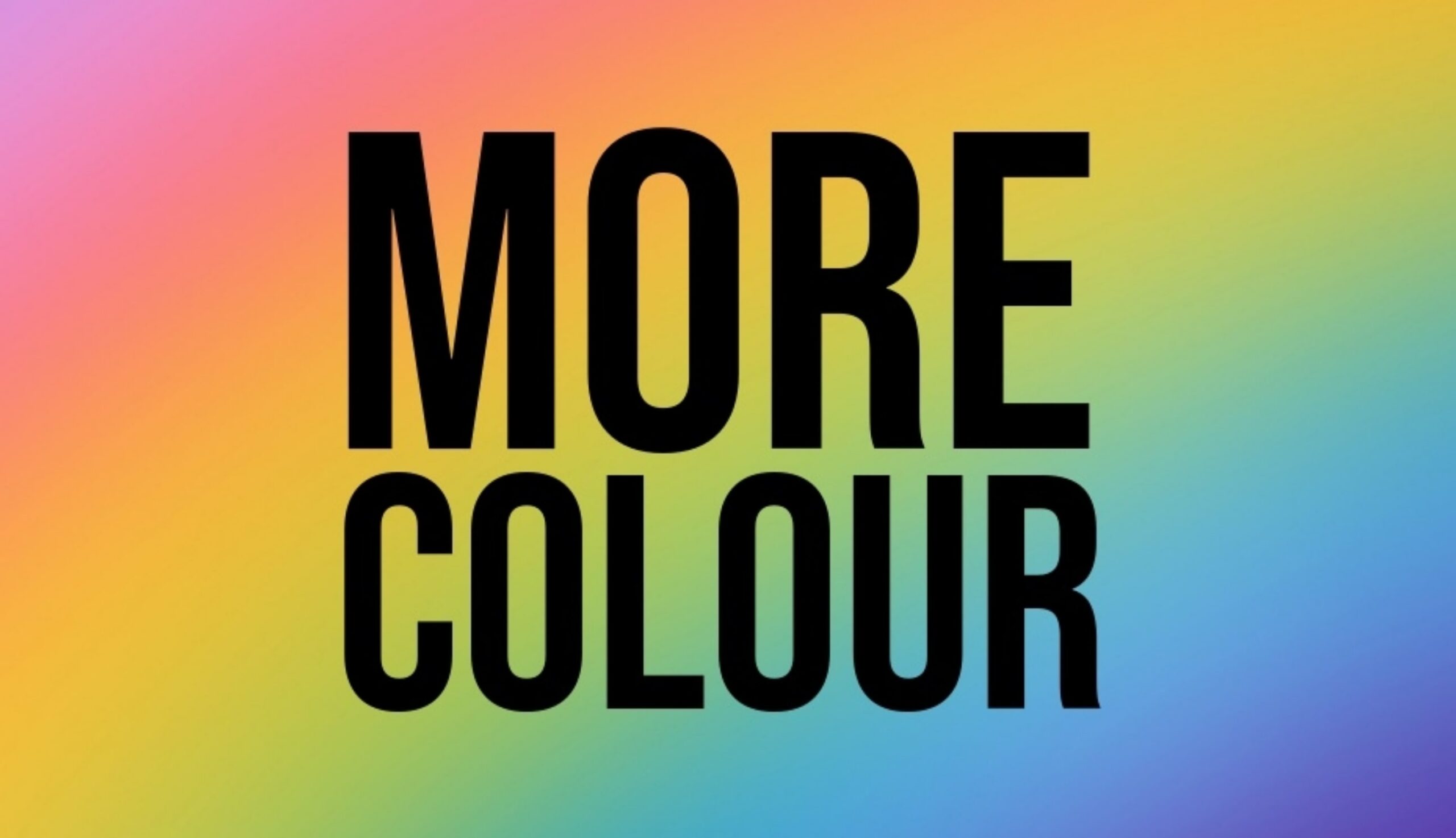
Do Mandem Need Feminism?
I launched MANDEM because I wanted to engage young people in social issues without boring them. I’ve had a wide range of conversations on the platform ranging from Peaky Blinders haircuts to the dangers of white supremacy. If I talked about all of the problems in the world 24/7, I would go nuts. It’s important that young people understand that they’re allowed to enjoy escapism while not being totally ignorant to the fuckery in the world. Having said that, in this article I’ll be focusing on some of the fuckery.
At a foundational level, MANDEM represents the intersection of race and masculinity. However, I have had far more conversations about racism on the platform than I have about masculinity. Recently we have held two panel-led events exploring the theme of masculinity under the name ‘Mandem Don’t Cry’. Whether mandem cry or not is slightly redundant to the conversation. We are far more interested in interrogating the reasons why men inflict violence upon themselves and others. The mainstream media narrative surrounding men of colour has often been centered around violence and misogyny, thus the conversation about masculinity is undoubtedly relevant to MANDEM.
“I have come to believe that radical feminist theory holds many answers to why men inflict violence upon themselves and others.”
Talking to men about masculinity is incredibly difficult because undoing years of socialisation into the traditional male role is a complex task and for many, not even a desired one. The reason I’m bringing feminism into the next discussion is because as far as I know, feminism is the only social movement that offers a critical analysis of the traditional male role. Furthermore, one of my inspirations for launching MANDEM was gal-dem.com – a platform that focuses on the intersectionality of women of colour in feminism. Since spending a significant amount of time researching radical feminism for my university dissertation, I have come to believe that radical feminist theory holds many answers to why men inflict violence upon themselves and others. I’m not saying it has all the answers, but I can confidently say that it’s a tragedy that so few men know about the feminism that loves men, cares about men and wants to liberate men from the patriarchal culture that often causes them great pain. Don’t get me wrong; radical feminism is largely about liberating women. Yet, I truly believe that the feminist analysis of patriarchy could also significantly benefit some men in the long run.
‘Do mandem need feminism?’ is a provocative title. The answer is obviously not a simple one and I’m aware feminism is an incredibly broad term nowadays. Liberal feminism is currently stealing the limelight. Glamour models and celebrities are the feminist icons of today. The brave women who work for domestic abuse charities and organise resistance against the sexual exploitation industries (prostitution and porn) are forced into the margins. I sometimes wonder how many women who identify as feminist today have read the works of brave radicals such as Andrea Dworkin, Susan Brownmiller or Patricia Hill Collins. As I understand it, liberal feminism somewhat coincides with third-wave feminism and often focuses on ‘choice’ and individualism. To the liberal feminist, a woman’s right to choose to enter prostitution or porn is more important than critically analysing the social, cultural and economic conditions that may have influenced that choice. It’s not hard to see why radicals and liberals clash on points like these but the aim of this piece isn’t to criticise liberal feminists – many of them are doing positive things. Nonetheless, the feminism that I believe men need the most is certainly the radical version. Put more simply: liberal feminism may grant a few individual women higher salaries but will it bring an end to the deep-rooted misogyny in the minds of men? Radical feminism may not appeal to everyone and elements of it may sound extreme – but it can certainly challenge the deep-rooted misogyny in the minds of men.
“First-wave feminism occurred during a time of empire and colonialism; of course some of the women who pioneered feminism back in the day had racist views.”
As a man, it is only appropriate that I explore the role that men can play in radical feminism. One of the first things that I think is important to highlight about most radical feminism is that it is unapologetically anti-racist. I mention this because I have many black friends who strongly believe that feminism is dominated by a white narrative. They are not necessarily wrong; first-wave feminism (1830s – early 1900s) was certainly dominated by whiteness and we shouldn’t be surprised by that. First-wave feminism occurred during a time of empire and colonialism; of course some of the women who pioneered feminism back in the day had racist views. I want to make it explicitly clear that the feminism I am talking about is ‘radical feminism’. This feminism arose in the 1960s and became increasingly attentive to the importance of intersectionality in the following decades. Radical feminism often explicitly condemns capitalism, white supremacy and Western imperialism. I have many friends who condemn capitalism, white supremacy and Western imperialism but few of them are familiar with radical feminism. Why is this?
Perhaps it is because very few of us are educated on an underlying system that connects all of the issues above: patriarchy. This term pisses a lot of men off (especially the Jordan Peterson types) because its definition isn’t always made clear. To the radical feminists of the 60s and 70s, patriarchy is a social structure. This is important to acknowledge because ‘social structure’ invites us to explore all of the cultural, political and economic factors at play. It is sometimes easier to translate patriarchy as ‘institutionalised male dominance’. I find this helpful as it has similar connotations to ‘institutional racism’. It’s important to identify patriarchy as institutional because it implies that the oppression of women is deep-rooted in the system and not simply enacted by individual men (like Harvey Weinstein). Radical feminism has no interest in man-hating or painting men as evil – it identifies the system as evil.
“Not all women are deemed weak and not all men dominate.”
According to bell hooks, “patriarchy is a political-social system that insists that males are inherently dominating, superior to everything and everyone deemed weak”. What I find particularly interesting about her definition is that she clearly identifies patriarchy as a ‘system’ concerned with dominating ‘the weak’. Not all women are deemed weak and not all men dominate. This observation is of crucial importance if we are to understand the complexities of patriarchy. When I refer to patriarchy I am referring to a social structure of domination that subjugates both women and men in varying ways. There are plenty of great female authors who can articulate how patriarchy oppresses women better than I can – but if we are to involve more men in the conversation, we must educate them on how men also suffer under patriarchy… in the hope that this inspires them to rebel.
Why should men give a shit about institutionalised male dominance if they’re the ones benefitting from it? Patriarchy’s main concern is the maintenance of a domination/subordination dynamic and this manifests in various ways. It is not misguided to draw connections between patriarchy’s domination/subordination dynamic and predatory corporate capitalism, the pathology of white supremacy or the economic exploitation of the ‘third world’. If men care about any of those things, they’d better take the radical feminist analysis of patriarchy very seriously. Alas, I am unable to draw all of those connections for you in a MANDEM article but I hope the idea will leave men with something to think about.
How is patriarchy harming men right now? A study published in 2017 on Human Communication Research suggested that men who watch porn are more likely to feel unsatisfied in their relationships. I am not trying to embarrass men or cringe anyone out here but like it or not, pornography is probably one of the biggest fuckeries to be birthed by patriarchy. Initially, I had no desire to study the feminist critique of porn but it was pretty difficult to avoid. Porn addiction is a bold example of the negative impact patriarchy is having on men. Porn is an industry that profits off graphic images of men dominating women. It is unapologetically brutal. Sure, it’s an awkward subject to talk about but if some men reading this have the slightest doubt about the ethics of watching pornography, I highly recommend they study the radical feminist critique of it. Don’t let the criticism make you feel ashamed and don’t let your skepticism of the critique mask your inner fears. Let it enlighten you. American university professor, Robert Jensen, easily tops my list of people who have done powerful work on why porn is a fuckery (and he’s a man!).
“As men, we have to question the ways in which we’ve been moulded by our environments from childhood.”
In my dissertation research, I came across an interesting quote from Michael S. Kimmel; “Sexual pleasure is rarely the goal in a sexual encounter, something far more important than mere pleasure is on the line; our sense of ourselves as men”. As men, we have to question the ways in which we’ve been moulded by our environments from childhood. This is by no means an easy task and it is likely to be painful – but it’s time for us to face fear. As young as 14 or 15, I can remember my male friends putting themselves under immense pressure to get sexual action at any cost. Boys who got the sexual action first immediately received social praise from the other lads. This teenage macho madness was so extreme that boys would be teased or bullied if they were lacking sexual action or struggled with impotence. Michael S. Kimmel argues that the male craving for sex is about more than just sex. Men crave self-worth and the validation of ‘manhood’; neither of which are gained in any longevity from a single sexual encounter. Despite this, our patriarchal culture often tricks men into believing that self-worth and manhood reside in how many girls they can ‘smash’. What are the dangers for men here? If self-worth and manhood are so defined by how many girls they can get, men who do not possess the talents of a James Bond-like womanising maestro (which is most men) will inevitably feel isolated. Loneliness and isolation are key factors in the damage men inflict upon themselves and others – and too often this patriarchal environment results in sexual violence against women.
This piece is a lot to take in and undoubtedly there is a lot I have missed out. I am not an expert on any of the issues that I have addressed but I do have the privilege of attending a university that offers me access to expertise. I still have a lot to learn but the small insight into radical feminism that I’ve received looks promising. If we’re to take male suicide and male violence seriously, I encourage that we all engage with it. If your problem is with the terminology, change it. Race-conscious womanism works. Anti-patriarchy works. Now more than ever, we cannot afford to be turned off by semantics and the negative stigma attached to feminism. Words are important but not as important as the thoughts behind them. Jensen argues that ‘a serious commitment to a radical approach requires significant change within all our lives, whether male or female’. This is scary and overwhelming – but instead of letting our fears freeze us into paralysis, perhaps we must face them. Come along to our next event and join us for a discussion about whether men need to start taking the thoughts behind radical feminism more seriously.
Elias Williams holds a degree in BA Filmmaking from UWE and is currently doing an MA in History at the University of Bristol. You can watch the discussion that followed this article here.



